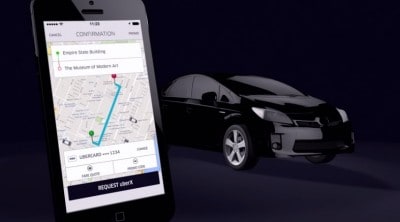 Rideshare services like Uber have been at the center of global controversy recently, as cab drivers all over the world are demanding that governments ban the services because they can’t compete with them.
Rideshare services like Uber have been at the center of global controversy recently, as cab drivers all over the world are demanding that governments ban the services because they can’t compete with them.
For generations, cab companies have enjoyed the benefit of government protectionism, maintaining monopoly privileges over an entire industry due to strict licencing and regulation agreements. Uber and other rideshare services like Lyft came on the scene a few years ago and allowed customers and unlicensed cab drivers to cut out the middle man and find one another quickly and easily.
Not only are these services cheaper than traditional cabs, due to the lack of government involvement and red tape, but they are also far more convenient and allow people to get a ride home much faster than they would if they called a traditional cab. This fact has led many to believe over the years that these services actually save lives, by making it easier for drunk people to get a ride home when they can’t drive home themselves.
Until now there has been no hard evidence to prove this, but a recent study conducted at Temple University was able to bring enough data together, so we could at least estimate the impact that Uber and similar services have had on drunk driving accidents.
The researchers looked at drunk driving data between 2009 and 2014 in California, as 2009 was the year that Uber first entered the marketplace. What they discovered was a decrease in drunk driving related deaths that was somewhere between 3.6 percent and a 5.6 percent.
According to the text of the study:
Economically, results indicate that the entrance of Uber X results in a 3.6% – 5.6% decrease in the rate of motor vehicle homicides per quarter in the state of California. With more than 13k deaths 22 occurring nationally each year due to alcohol-related car crashes at a cost of 37 billion dollars25, results indicate that a complete implementation of Uber X would create a public welfare net of over 1.3 billion to American taxpayers and save roughly 500 lives annually. Moreover, with costs to the individual (e.g. court costs, insurance rate increases, loss of income) totaling between 5k and 12k dollars for the first DUI offence26, significant welfare accrues to the individual as well by leveraging these services.
Theoretically, these results have many implications for the sharing economy. To the degree that vendors such as AirBnB, Uber, and Lyft have been proposed as solutions to many market failures, our work provides cautionary evidence that consumers will continue to use established vendors when prices increase. As a result, while lower priced hotels and car services may be usurped by these emerging business models, minimal evidence exists to suggest that premium vendors will be displaced (as evidenced by the absence of a stable and consistent effect for Uber Black car services).
John Vibes writes for True Activist and is an author, researcher and investigative journalist who takes a special interest in the counter culture and the drug war.
This article ( Study Shows That Uber And Other Rideshares Significantly Cut Down On Drunk Driving Deaths ) is free and open source. You have permission to republish this article under a Creative Commons license with attribution to the author and TrueActivist.com.


